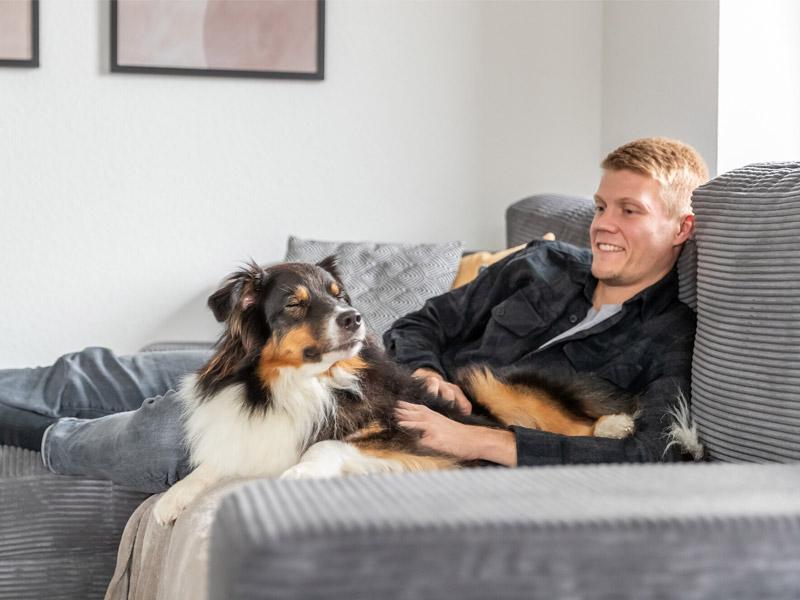Seniors - tips for declining vision and hearing and dementia
Life with an elderly pet is something special. Not only does the bond with your four-legged friend become more intimate over the years, our older pets also develop a special aura that is often characterized by dignified serenity and calm.
Many things now run more slowly and the need for periods of rest has increased. You need to be especially attentive here, because many changes go unnoticed at first. Regular check-ups at the vet are important, as diseases such as arthrosis or diabetes can be diagnosed there.
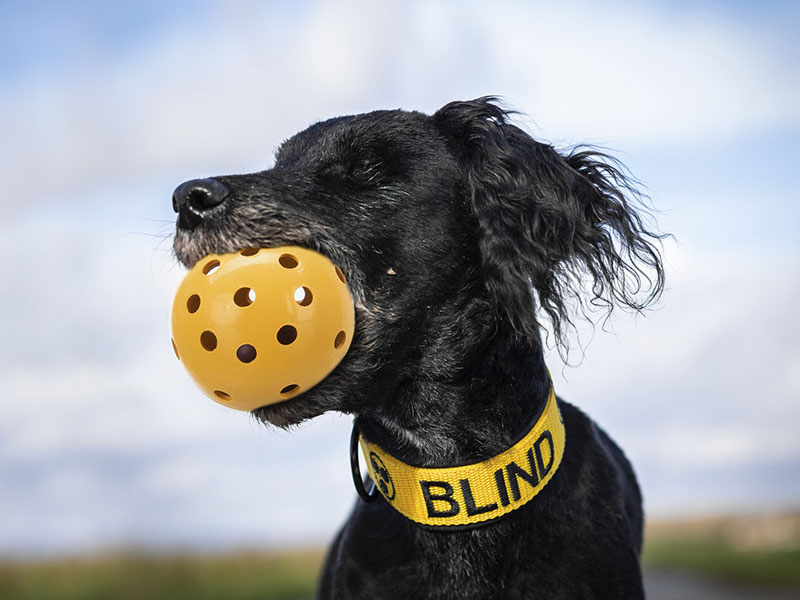
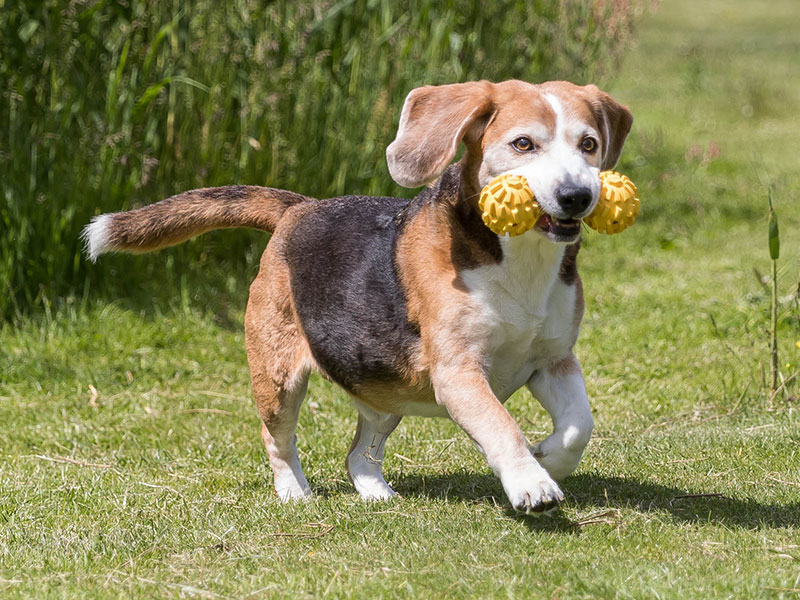
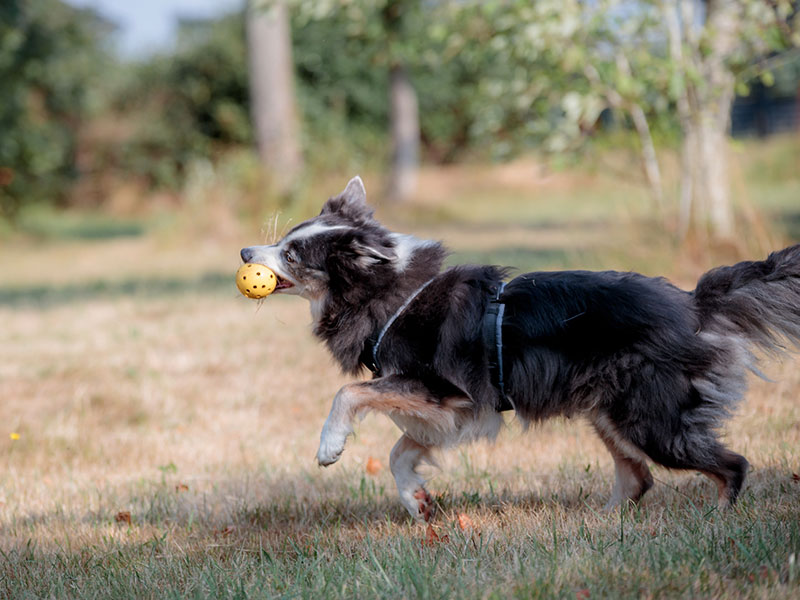
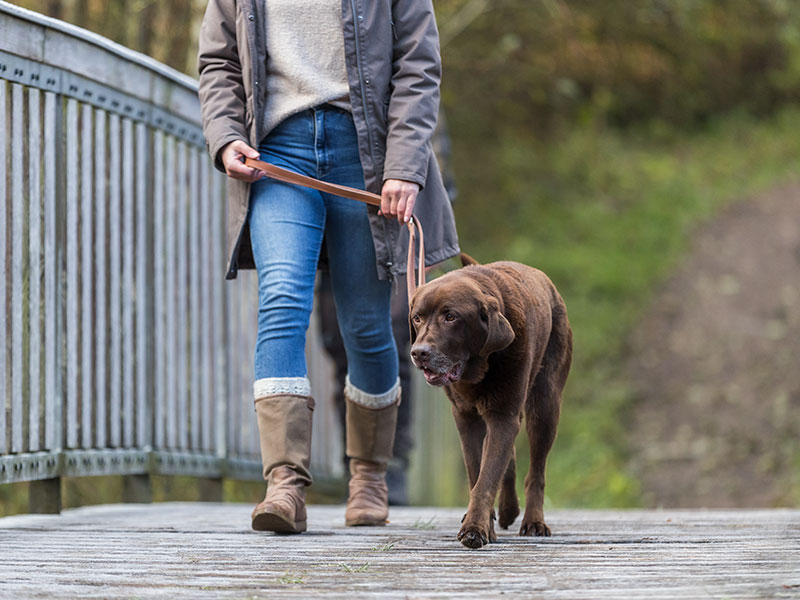
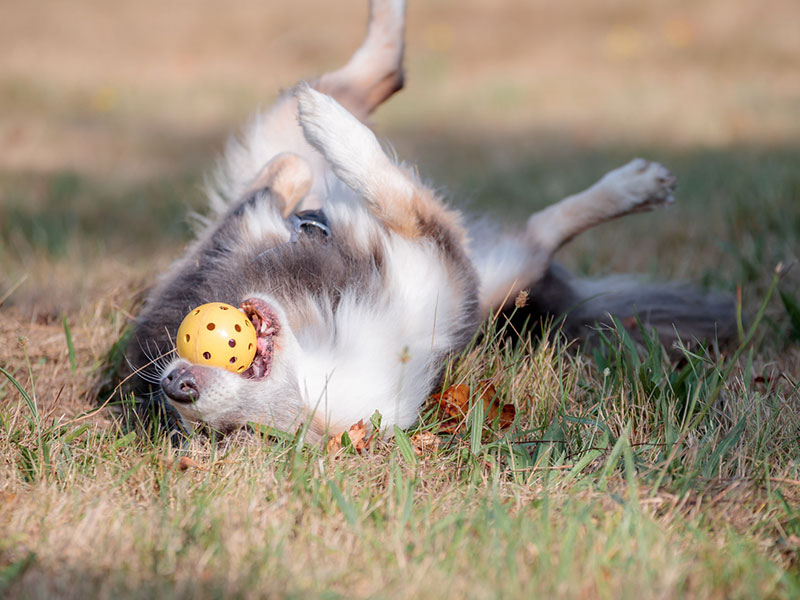
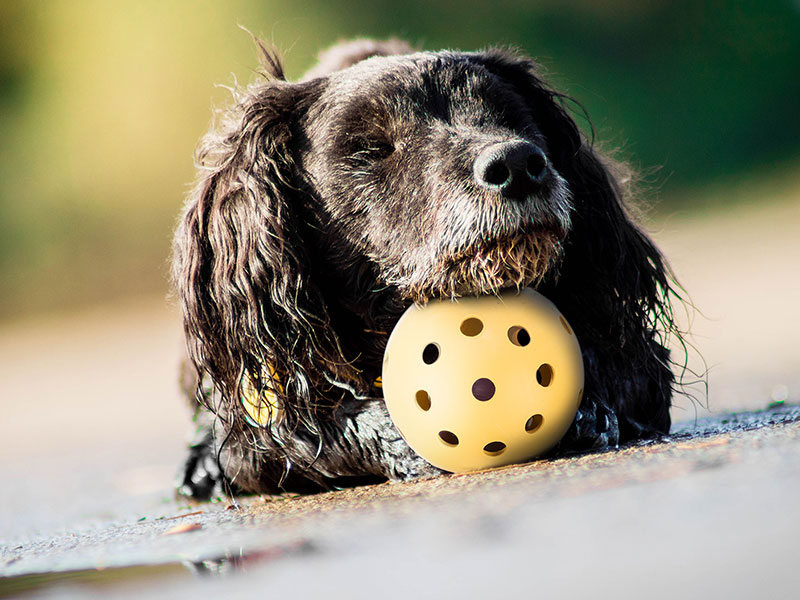
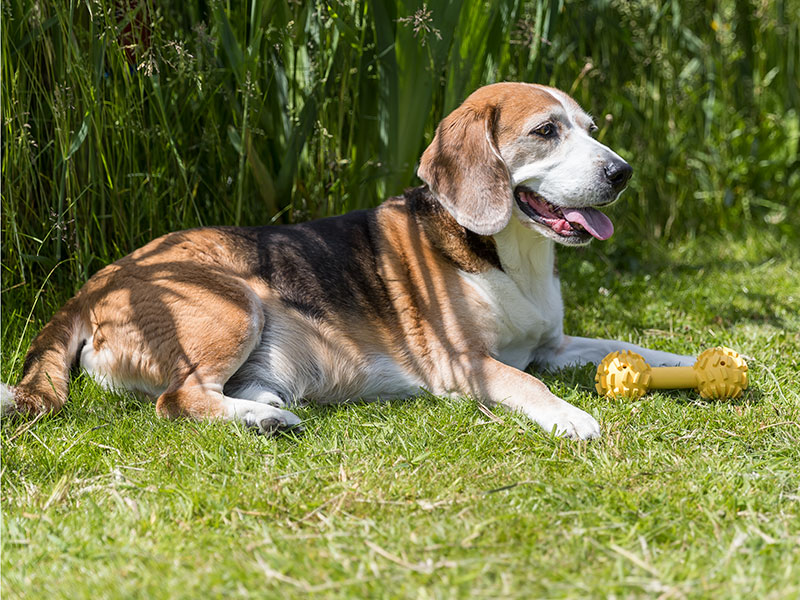
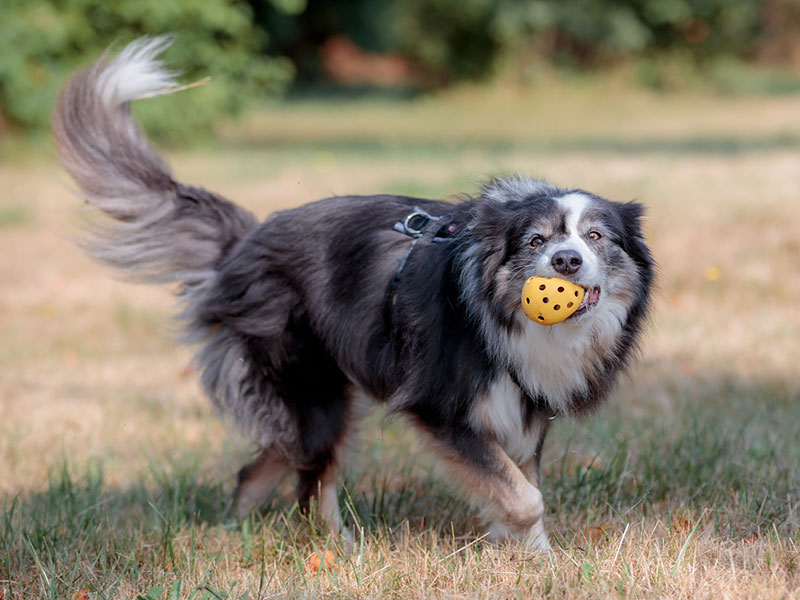
Deterioration of vision - blindness
Our furry friends often have their vision deteriorate as they get older. This is often caused by cataracts, which can be seen in the lenses of the eyes as they slowly become opaque. The best support you can give your senior pet is to create a barrier-free environment and stop making changes to the shared living space. Familiarity creates a sense of safety.
This is true for the outdoors as well. Dogs will continue to enjoy their usual walks. Keeping your pet on a leash provides stability and is also clearly advisable for safety reasons.
You don't have to stop playing, as many blind or visually impaired dogs are just as lively and eager to play as dogs who can see normally. However, they do need special toys. Soft yellow toys that make sounds are optimal. Yellow is a color that dogs can see especially well. In addition, these toys appeal to your older dog's sense of hearing and are easy to grasp and carry.
Deteriorating hearing - deafness
Hearing often deteriorates with age. When commands you shout are no longer followed, this creates new challenges. However, there are solutions to these problems. Sometimes dogs who are hard of hearing can still hear the sounds of a dog whistle just fine, for example. If you can no longer go for a walk without a leash, your dog will surely be happy to have as large a range of motion as possible with a tether or retractable leash.
Dementia (Cognitive Dysfunction)
When old dogs become demented, a lot changes in the lives of humans and their pets. The disease can affect your pet's memory, cognitive functions, motor skills and personality. Affected pets often give the impression of being disoriented, they cannot find rest and their sleep patterns change. What your senior pet needs from you now is, above all, understanding and patience.
There are a number of steps you can take to make living together easier. Avoid any kind of stress. Regular daily routines and a familiar environment will give your partner with the gray snout stability and security.
Check your shared living space for possible obstacles and sources of danger. If your elderly pet roams at night, nightlights can provide guidance. Perhaps it might be wise to close off some rooms or stairs altogether?
Many elderly pets love their rituals, but they are even more important for pets with dementia. Sniffing carpets, in particular, can be a great help. Sniffing relaxes, engages the pet and serves to interrupt periods of restlessness. In addition, small games of fetch help keep a demented senior pet as mentally active as possible. It is best to incorporate short play sessions into the day.
